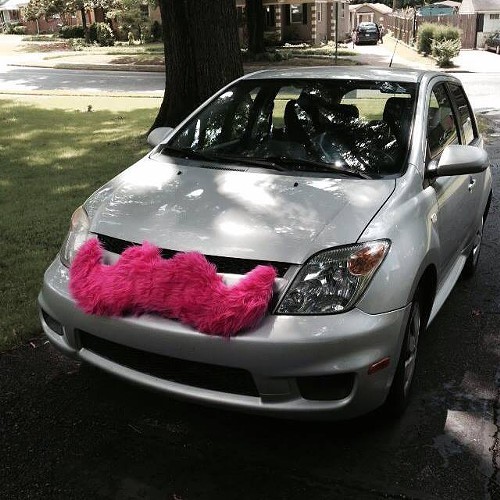
- Shannon O’Daniel
- A Lyft car with its trademark pink mustache.
The city of Memphis will be issuing a cease-and-desist order for ridesharing services Uber and Lyft until the two companies get city permits to operate.
The companies first arrived in April and operate through smartphones, removing the need for cash being exchanged in the car itself.
Late last month, the rideshare services first hit a snag in the city when the Memphis International Airport told Uber and Lyft that, without permits, drivers would not be allowed to pick up or drop off passengers.
Cities around the country have seen pushback from taxicab associations and unions toward the rideshare companies. One campaign called “Who’s Driving You?” is pushing for regulations on competitors as an initiative of the Taxicab, Limousine, and Paratransit Association. Dave Sutton is the spokesperson for the campaign.
“Uber and Lyft force their way into markets without taking the proper steps to ensure the safety of the public,” Sutton said. “Part of their business model is based on stress-testing rules and regulations and seeing if a city will simply roll over and allow them to ply their illegal services as an unlicensed taxi company.”
Both Uber and Lyft have local and federal background and vehicle checks — as cars have to be 2000 models or newer — as well as a five-star rating system that differentiates itself from a typical taxicab company. If a driver’s average rating falls below four stars, the driver is blacklisted.
Drivers of both companies have been pushing back on social media like Facebook to get users to write to Mayor A C Wharton and express concern over the cease-and-desist.
Shannon O’Daniel is a driver for Lyft who is leading a campaign on her Facebook to educate people, including the mayor, on the rideshare services.
“The city really needs to take the time to inform themselves about Lyft’s policies and procedures before presuming anything about the drivers or the company,” O’Daniel said. “Lyft and other companies like it have taken the rideshare movement into the 21st century. When cab companies refuse to move forward and adjust their procedures to reflect the times, rest assured someone else will. And they have.”